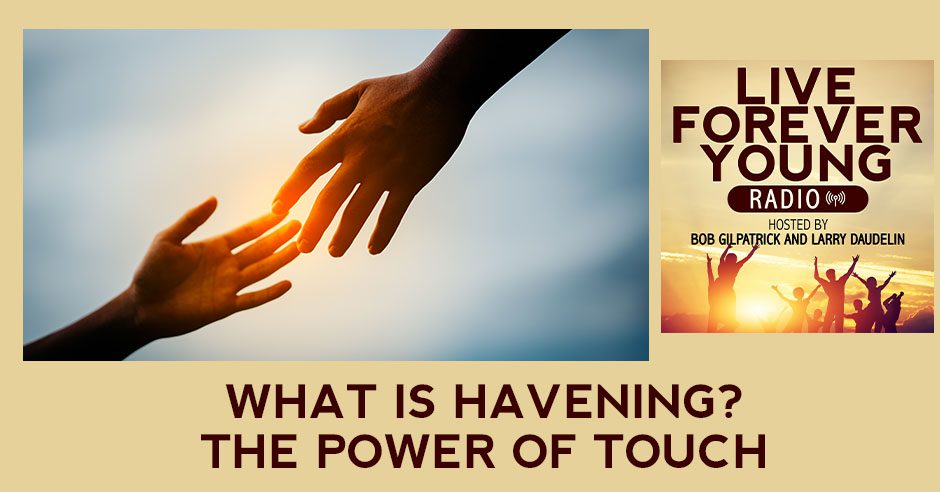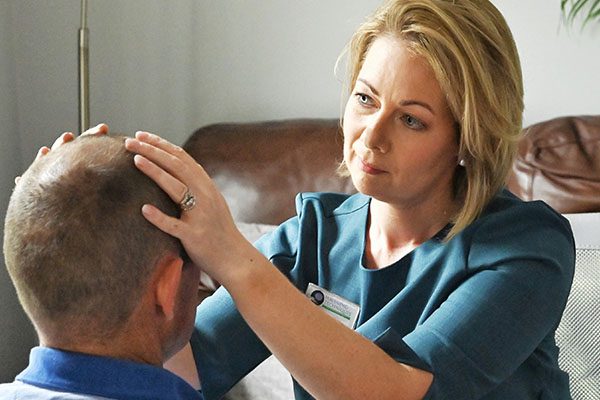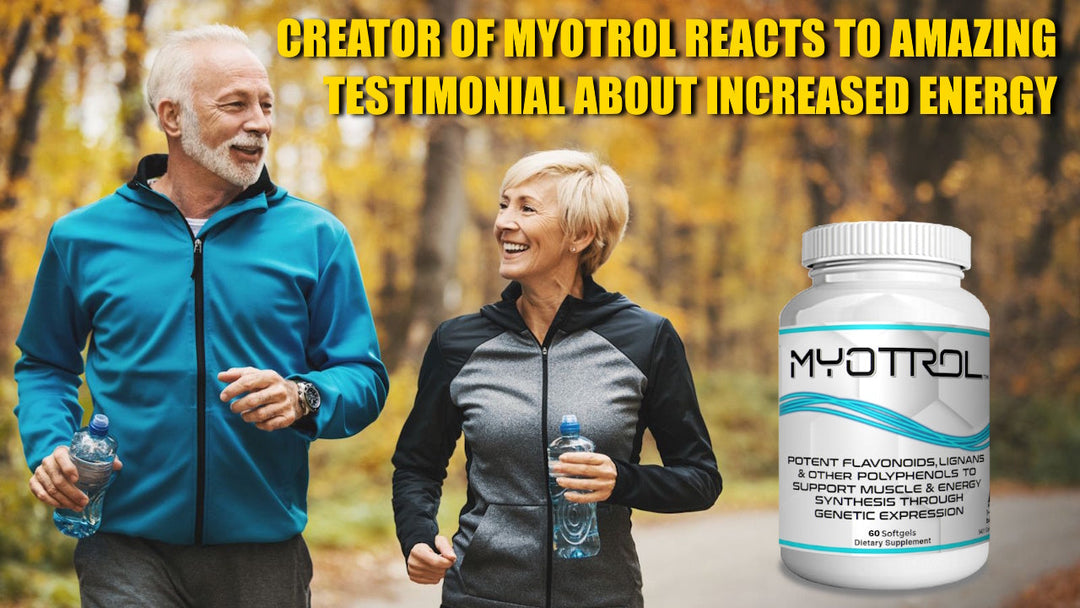What Is Havening? The Power Of Touch

The power of touch can have a profound effect on the spiritual and mental health of an individual. In this episode, our hosts talk about “Havening” a new alternative therapy technique that incorporates distraction, touch, and eye movements to help reduce anxiety and stress caused by negative memories. Learn how "Havening" started, the science behind it and how you can harness the power of touch to overcome fears, anxiety or stress you may have. Sit back, relax and get ready to live forever young!
---
Watch the Podcast here:
What Is Havening? The Power Of Touch
On the show, we talk about Havening, a newer alternative therapy technique that incorporates distraction, touch, and eye movements, to help reduce anxiety and stress caused by negative memories. Learn how Havening started, the science behind it, and how you can harness the power of touch to overcome fears, anxiety or stress you may have. Sit back, relax, and get ready to live forever young.---
We're going to talk about Havening. We have people like, “What is Havening?” We're not talking about building little shelters out in the woods like if you're in survival mode. We're talking about something different. Here's what's going to happen.
We're going to describe what it is. We're going to demonstrate it, and you're going to be able to realize at the end, as we're doing the demo, how you can use this technique to make a positive benefit for your emotions, your spirituality, maybe even physical issues you're having like pain.
Getting in touch with that compassionate side, a lot of the times in our society, for some reason, we tend to feel guilty about having self-compassion or self-care. We did a show called Self-love, Self-Care. We talked about the concept of self-love. This is taking it to a different level here. In our society, unfortunately, many times, a lot of people tend to disregard their own self-care or feel bad about doing it or not take the time to do it.
This is a really great self-care technique that is also profound. It’s the power of touch Havening where you're going to be touching your hands together and your arms, touching your face while you're going through a specific sequence of thought patterns in order to resolve things. This is what's called psychosensory technique.
It means you're using sensory technique to have an influence on your brain and your mind. We first heard about this technique from a famous neuroscience researcher named Sue Stebbins. Sue is the author of Mind Your Head. She was talking about this technique, and that's when we started exploring it. We learned from Sue. Then we also learned from going to Havening.org, which is the official website.
It’s very good stuff, check it out. We watched all their videos. Then we went on to a 1 hour and 15-minute long event where one of the certified trainers, Elena Kindler, decided that she was going to be doing this event for people for free to join in and learn about Havening, and we get to do it along with her.
It was actually really informative. It was something that we were like, “We’ve got to bring this to our people.” Incredibly relaxing and therapeutic. Havening was founded by Dr. Ronald Ruden. He is a medical doctor who has committed his life to helping people that are trying to be happy and healthy. He knows that his Havening technique helps with physical issues, emotional issues, and helps people to have this sense of self-love.
I was going to say it, but you were telling me, you founded it in 2010, so it's a fairly new thing. From what we've heard, a lot of people who are using it, and actually the experiences we've had, have been really helpful.
Dr. Ruden wrote a book where he first introduced it in 2010. His book was called When The Past Is Always Present. That gives you a clue. What this is about is Havening helps you to deal with the recurrence of events, where you're remembering events from the past that had caused you trauma or some other discomfort.
When you remember it, it causes you more discomfort. Sometimes you're not even really remembering it, but you might react or overreact to something. People say, “That person is overreacting,” it's because something triggered events from the past.
In the most extreme of cases, if someone has had a really bad trauma, something like being in the war, a severe car accident, a death of a loved one, especially if it was violent, these things create these imprints in the brain, then if something later on triggers it, it comes back up and they're reliving the event just like it actually was happening all over again.
That sounds like something that if not dealt with, it will last forever. I know some people who are in their 70s and 80s. I know my dad's friends that were in war. They still deal with those memories of the things they saw, and that's imprinted like blazing on the brain.
 What Havening does and why it works is it's changing your brainwaves. It's changing your brainwaves in a part of your brain called the amygdala, which is like the seat of your brain that deals with these things, and also deals with whether or not everything is okay or if there's some danger.
What Havening does and why it works is it's changing your brainwaves. It's changing your brainwaves in a part of your brain called the amygdala, which is like the seat of your brain that deals with these things, and also deals with whether or not everything is okay or if there's some danger.
We did a show called Finding Your Inner Balance. We went into a lot about the amygdala, so check that show out. There's a specific part of the amygdala, the lateral nucleus, which has been identified as the area that's dealing with these encoded memories, and very sophisticated research about how channels open up in the cells and allow calcium in and receptors, and this kind of thing that we won't go into all the details about.
What it turns out is the triggering is dependent on the type of brainwave present at the time in that part of your brain. All different parts of your brain are vibrating at different frequencies. People have heard of Beta waves, Gamma waves, Alpha waves, Theta waves. There's a thing called Theta healing. Delta we know is the wave of sleep. They're in different wave forms. Your brain has different waves that are controlling different parts of your brain at different times.
Memory, for example, is dependent upon theta waves in your dentate gyrus while you're sleeping. During waking hours, it's not vibrating in Theta. This is how this type of thing works. It turns out that with Havening, with this touch, this psychosensory input, you can actually change the brainwave in the area of your brain, the lateral nucleus of your amygdala.
By changing it from its normal brainwave state into a Delta wave, it turns out that that whole chemical reaction that's going on in the lateral nucleus can't happen in the presence of Delta waves. This state of encoded memories being triggered by synesthesia's that now produce this maladaptive response that keeps people stuck and sick and stress can be totally changed by producing these Delta waves at the time of the remembrance.
It's time-specific. You need to be remembering it got so that as the action begins to happen, if you change to Delta and it blocks it, now your brain has learned to create Delta in the future even if you're not doing the Havening. It can be a permanent fix. What are you dealing with? You're dealing with fears, anger and guilt, PTSD, and these types of things will lead to depression, anxiety, social disorders, addictions like alcohol, drug abuse, and addiction to food. People can get very sick from this addiction and it can kill you.
Too much of anything can kill you, even food. This is why Havening is important. It's not just a cute thing, “I'm going to love myself by rubbing my hands together.” I might actually be able to save my life rubbing my hands together. In the case of people that have had big traumas, you’re going to want a Havening therapist.
These Havening therapists go through extensive study. They have to actually become certified through the school that is on the Havening.org site. You can actually go in to that site and you can participate along and learn the basics of Havening for yourself with Elena Kindler. May 2nd 2022 is her next one. We're recording this prior to that. That's her next one, but she's going to be doing them ongoing, so go to Havening.org and click on Events.
Then you'll be able to see it. Some of the events are trainings for people that want to begin to become practitioners and eventually trainers. This is an intellectual property of the company. Havening is a registered trademark and their training materials, so this is where you want to go for the actual experience and the training. Now, we are conveying the existence of it and showing you what we learned from watching their videos and with Elena.
If somebody is dealing with a trauma like PTSD or some of those things, you’re going to want to do this with a certified person for many reasons. Here's the main thing. Where did the word, Havening, come from? A Haven. What is a Haven? It's a safe place. Havening is a verb. It’s finding a safe place. In order to find a safe place from a severe trauma, you're going to need the help of a Havening therapist.
It probably didn't just happen overnight. If you've been dealing with it for a while and it's a deep-seated issue, you’re going to need some professional help.

We watched one particular video where a therapist was working with a woman who was afraid to get on an escalator. She was afraid, she wouldn't go on it. The therapist sat in front of her and he had her bring up the thought of being afraid of riding on an escalator. He asked her, “On a scale of 1 to 10, how much does this bother you?”
She’s like, “I can't go on an escalator. It's a 10.” While she was thinking of this, he actually reached across and was touching her arms and touching her hands. He had a discussion with her about it. When they were done, he's like, “Go and give it a try. See if you can get on to an escalator.” She did. They showed a picture of her. She actually got on the escalator and she stumbled, which could be extremely frightening because that's what you're afraid of.
That's the whole point. You don't want to fall. Nonetheless, she got right back, rode the escalator, and she was talking while she was on the escalator to a person with a video going, “No problem. This is great.” That was an example. Havening involves bringing up the issue that you want to deal with, and touching your hands together. They start by saying, “Rub your hands together like this.”
When we were watching Elena Kindler, she was actually moving her arms back and forth where she would keep her hands together, but she was doing this for the whole time. Then she did a lot of this where she touched the top part of her arms by just going up and down. It also is good to touch your forearms. In another one of the videos, we watched people would touch their face, their forehead. It was almost like you're washing your face with your hands without soap and water.
She said there isn't really one you have to do for this or that. It's just whichever touch that you prefer the most is the one that you go with. What happens is this. While you're touching yourself, you're creating these Delta waves in the lateral nucleus. You bring up the issue, you've got the waves going that are facilitating the trauma, the reliving of the trauma, making you feel fearful of the escalator, and while that's going on, you're switching it to Delta. It stops.
It's a chemical reaction that's going on in your brain. It won't work in the presence of Delta. All of a sudden, it stops. The fear stops, the depression, the anxiety stops, and it then creates a memory in your brain of the recruiting of the Delta waves. The recruiting of the Delta waves comes from the Havening, the power of touch come.
Fortunately, what also happens is your brain learns for that specific event to create Delta every time in the future. If you're reliving the fear and the associated anxiety from a car accident, so that every time you get close to a car, you start to panic, or maybe you can't drive yourself because you're afraid. You can make a permanent modification in your brain so that you can free yourself from these negative emotions that might be, not only holding you back from something, but creating a stress response that is really bad for you.
Too much cortisol, too much inflammation can give yourself a heart attack, from these encoded memories that want to last your whole life. It's a physiological reaction to an emotional state of mind that continues to play over and over in your head like a bad song or a bad dream. You can't get the song out of your head.
The other thing is your brain tends to organize things along emotional states and similar events. If you're in a car accident and you create this encoded memory that gets triggered whenever you get too close to another car, what if you get into another car accident? It's twice as bad. If you get into a third car accident, it's twice as bad again or four times as bad as the first time.
It's called Gestalt. For some people, the events that cause the problems happen many times such as child abuse. A child can be abused every day for years. Imagine the buildup of the encoded trauma. Havening can be used for adults like this that even had situations like that. For ourselves, watching along with Elena, learning for yourself. If at some point, you start to feel upset about something, it might be any little thing, you can use Havening and generate them Delta waves.
Don't try to ignore at the moment right away the event, just say, “I recognize that I felt a little angry about this situation, so I'm doing some Havening, and I'm starting to feel better.” You can use it for things like that. If you're going to use it for traumas, there are plenty of people like Elena that are on the website that can help you, and they'll do it over the phone, or some will do it in person, somewhere in different countries. There's always Zoom too.
 A lot of that is done. I noticed there was a Havening instructor in Australia. This is the general gist of it. I wanted to do this today because I’ve seen it from my own personal experience using it and following along with Elena, it worked really well. I wanted to share it with everybody.
A lot of that is done. I noticed there was a Havening instructor in Australia. This is the general gist of it. I wanted to do this today because I’ve seen it from my own personal experience using it and following along with Elena, it worked really well. I wanted to share it with everybody.
One of the best things about it is that we'll have all the information on this blog. You'll see stuff flashing on the screen. If you haven't seen it from the stuff that we just put up on the screen, go down to the bottom of the blog, and also in the description of the YouTube video. We'll have all that information, so you can check it out. It’s Havening.org.
Thanks to Dr. Ruden for his discovery. Thanks to all the Havening instructors, people involved in it.
Thanks to Elena for doing this free hour-long session. It’s totally worth it.
Thanks to Sue Stebbins, the neuroscience researcher who wrote Mind Your Head. This is minding your head by minding your body.
We wouldn't have known it without her. Thank God for that. We're happy to bring it to you guys.
Thank you, everybody, for reading. We'll see you on the next show.
Important Links
- Self-love, Self-Care – Previous Episode
- Mind Your Head
- Havening.org
- Elena Kindler
- Dr. Ronald Ruden
- When The Past Is Always Present
- Finding Your Inner Balance – Previous Episode
- Events - Havening





Thank you Bob for this Havening podcast, and thank you for calling me directly
Memories of trauma from 47 years ago came up safely in prayer
God led me to go back that far to not fear current life threatening events happening this current year
Your personal outreach to me affimed that my Father in Heaven will never forsake me nor abandon me
I am surrounded by Light abd Grace each hour and at every turn of events
With every breath i can invitr thr Holy Spirit into my heart. I meet my Savior there and witness his suffering for me
Instantly my mind turns to rejoycing and my heart beat slows and calms.
Leave a comment